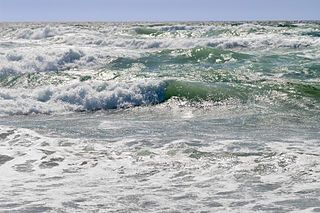Ocean Energy Is Important, But Faces Stormy Conditions

Typically, the commitment of private capital, e.g., investment from venture capitalists, happens only when there is fairly low risk and fantastic upside potential. VCs love the prospect of getting in on the ground floor of the next Google or Facebook, and hate endeaveors in which large amounts of capital are at stake.
Where one can argue that the upside is attractive, at least on the risk side, ocean energy really doesn’t pass the test. There are dozens of different technologies, and, where a few have been abandoned as unworkable, a great many continue to make progress. Which will emerge victorious? It’s a hard call to make at this stage, not unlike picking next year’s Kentucky Derby winner. Government, particularly NREL (the National Renewable Energy Laboratory) and several top universities are working together to drive progress in this arena, but commercialization needs to happen soon in order to maintain forward momentum.
Another big unknown is the public appetite for clean energy solutions generally. It’s true that a large majority of Americans (and almost everyone outside the U.S.) believe that a migration away from fossil fuels is important. But how important? The voting public is on the receiving end of a variety of messages that are calculated to have us believe the unbelievable: that climate change doesn’t exist (or that we’re powerless to deal with it), that environmentalism is a job killer, and that the established energy interests has our best interests at heart.
It’s also true that environmental damage is occuring over a period of decades, and the public’s attention span is measured in weeks. We don’t have the intellectual and emotional stamina to stay amped up about a phenomenon that spans a generation or more. The fact that, here in the U.S., we have two-year election cycles, exascerbates that problem even further.
How will this work out? I’m not sure; I’m at sea. Pardon the pun. More soon.
